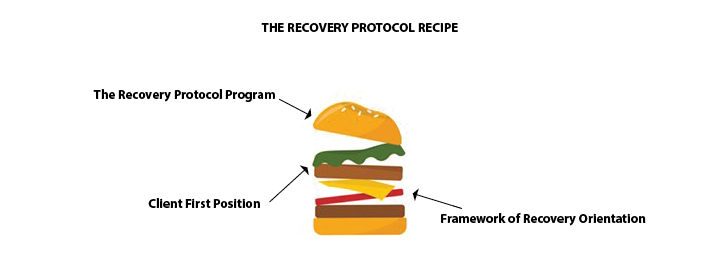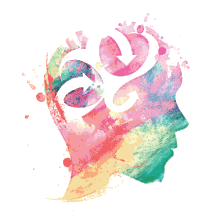
TAKE CHARGE OF YOUR MENTAL HEALTH RECOVERY
FRAMEWORK OF RECOVERY ORIENTATION
-Peace@Last-
It is recommended that the reader print the “Flash Drive Forms” and “Terms and Definitions” page prior to reviewing this online educational platform to aid one’s comprehension and understanding.
In the Meeting Room, the magic happens between the client and their provider regarding charting a recovery. The significance of meeting room space is pivotal for addressing a person’s cry of what to do next “When medications are failing.”
Framework of Recovery Orientation
Citizen Psychiatry is introducing this program to consumers affected by “treatment resistance,” where their lives are still hurting because of this condition. The core objective is to strengthen a person’s recovery psychology, which this condition can erode, starting with applying principles orienting a recovery climate in the service provider meeting room. This strengthening allows individuals to a) believe recovery is possible and b) engage in experiences allowing a “personal recovery” to be pursued and realized. By applying these principles, as outlined below, oriented to recovery, the service provider’s relational posture and attitude with their client are significant components in producing a strong recovery drive within The Meeting Room.
What is the role of the recovery orientation framework?
The foundation of recovery orientation is based on a set of tenets or principles, see below, that guide service providers to engage in the form of care that supports the pathway to recovery for the people they serve. Researchers in recovery care have shown how this orientation positively impacts recovery care outcomes, like hope-building, empowerment, and self-determination. As a result, countries like the UK, Canada, New Zealand, and the US have adopted this recovery framework and applied it to delivering mental health community services. This framework supporting a climate for recovery is a potent medium for encouraging consumers to realize their recovery aspirations, whether applied to service delivery systems or within the service provider’s office, The Meeting Room. With Citizen Psychiatry, the focus on the meeting room is pivotal for culturing a recovery climate used to implement the program.
The American Psychiatric Association has also adopted this recovery-oriented posture to guide psychiatrists in this practice in The Meeting Room environment with patients.
A meta-analysis was conducted on recovery-oriented principles applied up to the year 2017 with 1, 739 participants showed the following,
Results: The meta-analysis (N=1,739 participants) demonstrated that consumers experience greater (and sustained) improvement in person-oriented recovery outcomes when they are involved in recovery-oriented mental health treatment versus usual care or other types of treatment. -(Person Oriented of Individuals with Serious Mental Illness: A Review and Meta-Analysis of Longitudinal Findings, Psychiatric Services 2018 Mar 1;69(3):259-267)
Of particular note in this meta-analysis was the significant elevation of hope, empowerment, and recovery drive reported which are salient recovery outcomes to be realized.
The pioneering recovery research of Dr. Patricia Deegan, Ph., who herself lives with a diagnosis of schizophrenia, showed that people with psychiatric disorders are resilient and not weak in capacity, a fundamental recovery principle. Dr. Deegan found that people who engaged in what she called “Personal Medicine,” non-pharmacology actives that hold value, meaning, and purpose, like exercising strengths, interests, passions, and aspirations, for example, serve to: “raise self-esteem, decrease symptoms, and avoid unwanted outcomes such as hospitalization. When psychiatric medications interfered with non-pharmaceutical personal medicine, non-adherence often occurred.” –Scandinavian Journal of Public Health. Supplement Vol. 66, Vulnerability as a strength (October 2005), pp. 29-35 (7 pages)
Such surprising results overshadowed the general thinking that medications, as the fixture of modern psychiatry treatment, are the most important factor in driving full lives. Person-oriented recovery care research is, however, showing that psycho-active drugs are just part of the mix and are not the be-all and end-all. Over the decades, Dr. Deegan’s work and others have uncovered the importance of engaging in meaningful endeavors with friendships, family, partners, community, and passions as key features involved in achieving person-oriented recovery outcomes. This protocol’s core premise focuses on accentuating a person’s capacity and strengths to facilitate favorable recovery outcomes. These robust results occur when service providers hold the “attitude” or “posture” connected with this orientation framework that allows the relational climate with the client to be pro-recovery.
For the first time, the Recovery Protocol Breakthrough brings to the providers’ practice a structured method for allowing individuals to examine their Personal Medicine (recovery resources) that builds recovery strength. This program leverages a recovery-oriented climate in The Meeting Room to benefit examining one’s Personal Medicine to leverage its impact on an individual’s psychology of recovery. Here, the recovery posture within The Meeting Room fosters a micro-culture where people become visible and see that their lives matter, a fundamental component in building empowerment, a critical outcome in recovery. This empowerment building is further strengthened and reinforced by engaging the protocol instead of just relying on the osmosis of the recovery-generated climate to achieve this impact. In effect, our recovery program capitalizes on this micro-culture generated.

The following outlines tenets of recovery-oriented care. Citizen Psychiatry has further updated this list to bring this orientation of care in line with the program.
Tenets of Recovery Orientation:
1) Recovery exercises and elevates a person’s capacity, such as strengths, talents, attitudes, roles, skills, knowledge, pursuits, interests, aspirations, accomplishments, values, purposes, attitudes, etc., as a critical contribution to enhancing treatment while catering to remediation of the person’s identified hurdles towards making a recovery.
2) Recovery acknowledges there are two experts in the meeting room: the consumer as an expert on their life and the provider’s expertise and knowledge of mental health.
3) Recovery fosters empowerment and choice-making within a learning framework.
4) Recovery promotes self-determination
5) Recovery is a self-directed and collaborative journey with friends, family, peers, and community.
6) Recovery focuses on what is working right and not solely on what is wrong.
7) Recovery focuses on the person rather than the diagnosis.
8) Recovery emphasizes accountability, both with the provider and the person.
9) Recovery cannot be organized in a vacuum. It requires a purpose, a mission, and a vision.
10) Recovery views a person as strong in capacity and not weak in capacity.
11) In recovery, the participant plays an active role as opposed to being a passive recipient of care
12) Recovery embraces holistic care, body, mind, and spirit.
The Role of Medications in Recovery (40yrs later):
In Citizen Psychiatry, there is a recognition of medications making a valuable contribution to psychiatric stabilization, a short-term intervention. However, beyond this point, medications are least appropriate and effective in fostering personal recovery if there is little to no improvement beyond stabilization. At this juncture, for a long-term recovery to take hold, the role of medications takes a second seat to a recovery-first policy as the vehicle for activating a pursuit of recovery.
Optional Information
The following videos (see link below) are from the American Psychiatric Association (APA) website, which provides an overview of the Recovery Orientation modelled for psychiatrists and allows consumers and service providers to observe a cultured recovery climate.
“We are all in this together.”
-The Recovery Specialist
